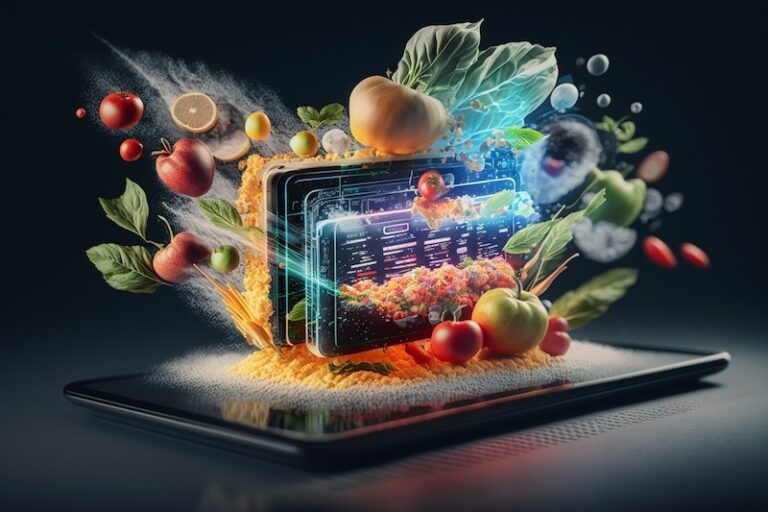Key Takeaways
- Learn about the groundbreaking innovations shaping the future of food tech.
- Discover the impact of technology on sustainability and food production.
- Understand how technology is transforming food experiences globally.
The food industry is undergoing a seismic shift, with technology at the helm of this transformation. As the world grapples with challenges such as climate change and increasing populations, innovations in food tech present viable solutions. These advancements, from smarter kitchens to sustainable farming, reshape how we perceive and consume food. To stay updated on the latest food news, it’s crucial to understand these emerging trends and their broader impacts. This changing landscape offers new ways to improve efficiency and provides opportunities to reduce the ecological footprint of food production.
In this article, we delve into the multifaceted world of food technology, examining how it’s set to redefine our plates in the coming years. From the rise of alternative proteins that aim to curb traditional livestock farming’s impact to the sophistication of AI-assisted cooking methods, technology meets necessity, creating new avenues for sustainability, nutrition, and global food distribution. By understanding these trends, both consumers and producers can better navigate the realm of modern gastronomy and anticipate the future of what makes it to our dining tables.
Introduction to Food Tech Innovations
Food technology is not just a trend; it is a response to a global need. By integrating tech into food systems, innovators are finding ways to produce, distribute, and consume food more efficiently. This shift is essential as it addresses many challenges, from minimizing waste to enhancing food security and sustainability. Every stage of the supply chain, from farm to fork, is optimized by the food industry’s digitization. Everyone from farmers to urban consumers will need to adapt to this era of tech-driven food solutions. With advancements like blockchain, consumers can have greater transparency regarding where their food comes from, further enhancing trust and traceability in the food supply chain.
Sustainable Practices in Modern Agriculture
At the heart of food technology is the drive to make agriculture more sustainable. Crop production is being revolutionized by methods like precision agriculture and vertical farming. The ability to produce many layers of crops in a more controlled environment through vertical farming eliminates the need for large tracts of arable land, which is especially advantageous in urban areas where land is limited. Precision agriculture, on the other hand, leverages data analytics, GPS, and IoT devices to optimize farming practices for better yields and reduced waste. This is essential in minimizing inputs like water and fertilizers, which can deplete natural resources or contribute to pollution.
The Rise of Alternative Proteins
Alternative proteins are no longer just a niche market; they’re becoming mainstream, showcasing the significant shift in consumer preferences toward sustainable and ethical consumption. From plant-based burgers like the ones from Beyond Meat and Impossible Foods to lab-grown meat that involves cultivating animal cells in a lab, these proteins offer a sustainable solution to the environmental impacts of traditional livestock farming. The benefits include reduced land use, lower greenhouse gas emissions, and eliminating ethical concerns associated with raising animals for slaughter. However, there are challenges in terms of consumer acceptance and production scalability. The taste and texture of alternative proteins are continually evolving to better mimic traditional meat products, thus appealing to a broader audience.
Personalized Nutrition and Health Tech
Technology also enhances our understanding of personalized nutrition, which tailors dietary recommendations to an individual’s genetic makeup, lifestyle, and health conditions. With advancements in health tech, individuals can now use DNA analysis and health monitoring apps to receive tailored nutrition plans, leading to improved health outcomes by targeting specific dietary needs and preventing nutrient deficiencies. This level of accuracy in dietary advice aids in the better management of long-term illnesses like diabetes and heart disease.
Smart Kitchens: Cooking with AI and IoT
The concept of smart kitchens is quickly gaining popularity, bringing the future of cooking into our homes. Pieces of equipment such as AI-powered ovens and IoT-connected refrigerators make cooking more intuitive and efficient. These smart appliances can suggest recipes based on what’s currently available in your fridge, align cooking times to synchronize meal preparation, and even offer real-time cooking tips for novices. This represents a new era in culinary convenience and helps reduce food waste by ensuring optimal usage of available ingredients. Additionally, including voice assistant technology, such as Google Assistant or Alexa from Amazon, enables hands-free operation of smart kitchen appliances, increasing accessibility and enjoyment of cooking, particularly for time-pressed individuals and families.
Revolutionizing Food Delivery Systems
The way food is delivered is shifting drastically, marking another area where technology is making its mark. Innovations like drone deliveries and autonomous delivery robots are becoming more prevalent in urban areas, especially as companies seek to overcome last-mile delivery challenges. In addition to improving efficiency by reducing delivery times, these techniques may also lessen the carbon impact of conventional delivery systems by reducing the need for road transportation. As more companies explore these options, we may soon see deliveries that are faster, more reliable, and less environmentally taxing.
Global Impact of Food Tech Trends
Global food systems are being impacted by food technology advances, which are bridging the gap between various cultural gastronomic experiences. These innovations make food more accessible to remote or underserved regions, promoting food equity on a global scale. While these advancements offer various benefits, such as increased food security, improved nutrition, and lower environmental impact, there are also significant challenges to ensuring equitable access across different regions. The impacts of food technology also extend to policy-making, where governments may need to update regulations to support these innovations while ensuring food safety and ethical standards. For an in-depth exploration of the global impacts of food technology, refer to this credible source.
The Road Ahead in Food Technology
Looking forward, the future of food technology is brimming with possibilities, hinting at a world where tech and nourishment are seamlessly intertwined. As innovations continue to develop, they will bring about more efficient and sustainable food systems that can cater to the world’s growing demands. However, addressing potential barriers, such as legal regulations, ethical considerations, and the digital divide, will be crucial for the seamless integration of these technologies into everyday life. The journey to reinvent the plate is underway, and understanding these trends will empower individuals and industries to adapt and thrive in this new landscape.








